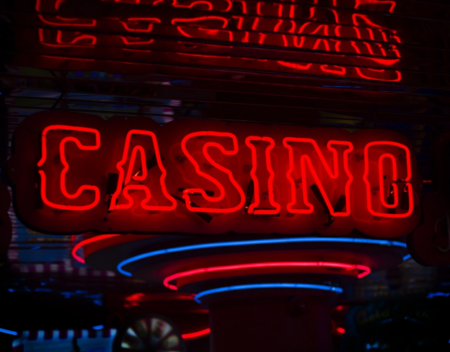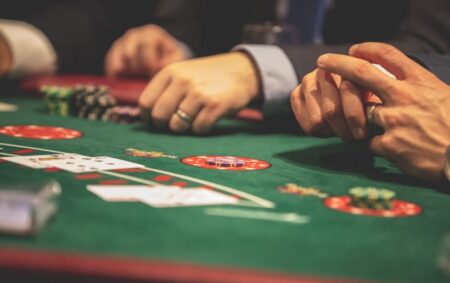A wise man once said, “It’s not how you start, but how you finish.”
When gamblers contemplate past trips, one of the first things to consider is how they performed overall. The most important question usually involves the amount of money won or lost.
As it turns out, that amount often depends on the outcome of one or two hands that take place towards the end of a gambling trip. You see, if a gambler is up big, they might consider placing a significant amount of their winnings on one bet.
If they’re down, they might make a desperation wager to try to get back to even. Whatever the case may be, your fate can come down to the final bet of the night.
While a good start is necessary to someone’s gambling success, it can be equally, if not more important, to finish on top. Here are seven things every gambler should know about finishing strong at the casino.
1 ‒ Start Strong, Finish Strong
Before I get into the meat of this argument, it’s important to point out the most obvious way you can help ensure a strong finish.
By starting off hot, you can set yourself up to succeed for the remainder of your gambling trip. Not only will you increase the size of your bankroll, but you can build confidence in your abilities.
That confidence, combined with the lack of tension a good start provides, will put you in the driver’s seat so you can coast to the finish line.
Every gambler might have a different early game plan, but there are a few things you should focus on.
- Make sure you’re in a good mood and are feeling relaxed.
- Don’t gamble if you’re stressed out or worried about money.
- Gamble within your means and don’t surround yourself with bad influences.
- If you’re not feeling it, it’s never too early to pull the ripcord.
Starting strong makes finishing strong less difficult. Additionally, you’ll likely have more fun if you get some early wins under your belt and find your groove.
2 ‒ Don’t Change Your Bet Size
Once you get off to a good start, it’s important to maintain the status quo. I’ll get into the specifics of that later. For now, the easiest way to ensure that is to keep the amount of your bet consistent.
Say you start playing blackjack at a $5 table and go on a heater. You’re playing so well that the next thing you know you’ve tripled your bankroll. At this point, you can do one of three things. You can either take your money and run, press your luck by increasing the bet size, or continue playing for the same amount.

Two of those three options are ideal, while the third is quite risky. The most conservative play would be to take your winnings and go, but I have no issue with wanting to continue to play. Deciding to increase your bet, however, can be problematic. By increasing the size of your bet, you run the risk of losing money at a rate you’re not used to.
To go along with that, If you’re playing well, you might not have faced a great deal of adversity. Winning is easy to handle, but losing takes its toll quickly. Once you start surrendering chips to the house, it can be tough to get back into a winning routine.
3 ‒ Stick to Your Best Games
For some reason, many mediocre and subpar gamblers want to make adjustments in the middle of hot streaks. Some change their bet size, others change strategy, and still, others decide to switch games altogether.
Note:
When you’re on a heater, the best thing you can do is ride it out. Once you crash back to earth, you can adjust your plan of attack.
Until then, ride that wave for as long as possible. You never know when you’ll get the opportunity to do so again. But in the meantime, one of the most outrageous things gamblers can do is start playing a different game. Obviously, something is working for you at a particular casino game so trying out different games is an interesting decision, to say the least.
4 ‒ Keep Your Foot on the Gas
Let me make something clear: There’s a big difference between conservative, smart gambling and displaying cowardice at the tables.
When you’re up big, I always recommend continuing to try to take advantage of your good fortune. Doing so can make a good night into a great one.
But lowering your betting amount when you’re up is inadvisable, especially if your goal is to make money. Still, it’s hard to criticize someone for being conservative with their winnings.

The thing about this predicament is that there’s normally a reason you’re performing well. Typically, that’s because your gambling skills are significant enough to net wins.
If that’s the case, continue to trust yourself and attempt to make some more money. However, the second doubt creeps into the back of your mind, it might be worth lowering your betting amount.
Once you start gambling scared, you can drastically decrease your chances of winning.
5 ‒ Take Your Winnings Off The Table
For those disciplined, more conservative gamblers, being up big can be disorienting. Conservative gamblers don’t often put themselves in spots where their winnings are significantly larger than their initial bankroll.
Seeing all those chips usually results in one of two things: an abandoning of a conservative strategic approach or anxiety. Either way, it’s not a great spot to be in for some people.
Tips:
One thing that I’ve learned to do is simply take any extra chips off the table every 20 minutes or so. If the amount gets overwhelming, which is a great problem to have, then consider exchanging them.
This might seem like an absurd and unnecessary step to some, but allow me to explain.
When I first started gambling, I considered myself to be overly cautious. I gambled at the least expensive tables possible, playing conservatively and by the book.
However, one fateful day, I went on the biggest heater of my life and quadrupled my bankroll in an hour or so. Once I saw that tremendous amount of chips, I realized I was indeed not as conservative as I once thought.
Fast forward 20 minutes later, and a healthy majority of my winnings were gone. Now, I pocket excess chips.
While I always know they’re in my possession, not having to look at them every second keeps me grounded and helps me stick to my strategy.
6 ‒ Don’t Let Pride Cloud Your Judgement
The climb to sizable profit is often slow and steady. With every win, your bankroll can grow almost as quickly as your ego.

However, big losses and the subsequent crash back down to earth can happen in an instant, leaving your pride in shambles.
Note:
Pride is a dangerous thing inside a casino. While everyone should try to exude confidence, there’s little room for arrogance. But it’s hard to contain your emotions when things are working in your favor.
In order to make sure you’re not gambling with your ego, try to remind yourself that you’re playing a game that is often completely random. The random nature of gambling does reward skilled players, but it also likes to punish those who get ahead of themselves.
7 ‒ Known When It’s Time to Cash Out
Everyone should learn how to win with grace and poise.
Sore winners are some of the worst people to gamble with. They rarely exhibit humility and act as if they have never been there before.
So, when things inevitably take a turn for the worse, no one at the table feels all that bad. Additionally, not learning how to win effectively can be detrimental to your bankroll.
Important:
No one can fault you for cashing out when you’re up. Before you gamble, set a ceiling and floor for yourself so you know when it’s time to quit.
Conclusion
Finishing strong at a casino can be more important than getting off to a strong start. Rarely do people kick themselves for decisions they made when they first start gambling.
No, it’s usually the last few hands you play that can make all the difference.
To finish strong, make sure you keep playing to your strengths and within your means. Even though your bankroll increases, it’s worth keeping your bet size consistent.
If you don’t think you can handle staring at your winnings, either exchange them for cash, or simply put the extra chips in your pocket. That way, you can act like you’re back to even and maintain the status quo.
Finally, never gamble with your ego. Winning can change people’s state of mind and gambling strategy; don’t let it do that to you.











